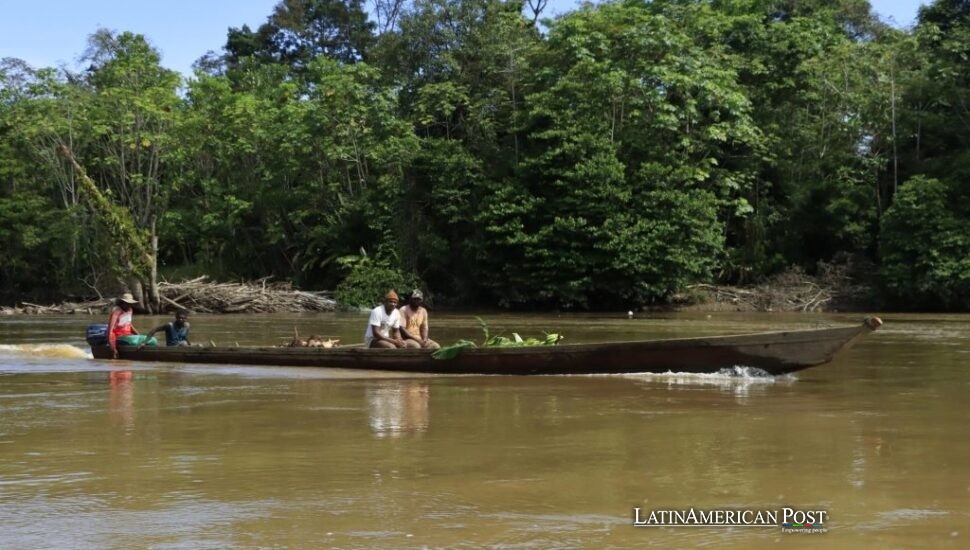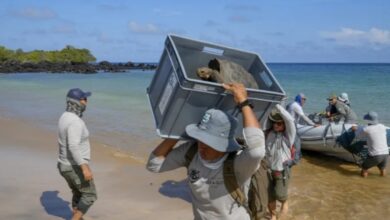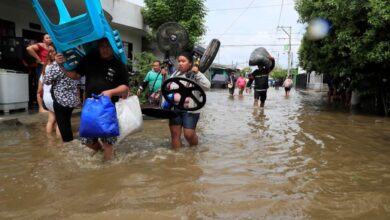How Colombia and Ecuador Are Rewriting Law to Listen to Nature Itself

In Colombia and Ecuador, rivers and forests can now sue for their survival. By granting ecosystems legal rights, two Andean nations are redefining who gets a voice in court—and raising a question every country will soon face: what does nature demand?
From Legal Theory to Constitutional Breakthrough
The idea that nature should have rights—that rivers, glaciers, and forests should be able to defend themselves in court—once sounded like science fiction. But in Ecuador in 2008, that fiction became law.
A newly drafted constitution, shaped by citizen assemblies and Indigenous voices, declared that Pachamama—the entire living system—has the right “to exist, persist, maintain and regenerate its vital cycles.”
“It was a deliberate shift away from the idea that human needs are always supreme,” says Luis Lloredo, a constitutional scholar at the Autonomous University of Madrid, in an interview with EFE. “This clause became the spearhead of a global legal rethink.”
Ecuador wasn’t alone for long. Bolivia followed with its 2010 Law of Mother Earth. India, New Zealand, and U.S. cities, such as Santa Monica, began adopting similar ideas. But nowhere has the concept been tested more boldly than in Latin America, where the fight to defend ecosystems is entwined with Indigenous worldviews, resource extraction, and rising climate pressures.
Whether it’s lithium mining in Bolivia’s salt flats or avocado plantations draining Mexico’s aquifers, Latin America’s natural systems are under relentless strain. In this context, granting personhood to nature isn’t just philosophy—it’s a survival strategy.
A River Goes to Court—and Wins
The theory became courtroom reality in 2017, when Colombia’s Constitutional Court recognized the Río Atrato—a river in the Pacific coast’s Chocó region—as a legal person.
Local communities, led by Afro-Colombian and Indigenous leaders, had submitted evidence of mercury poisoning from illegal gold mining and a loss of biodiversity so severe it threatened their entire way of life.
The court’s verdict was sweeping. It not only declared the Atrato a rights-bearing entity—it ordered the creation of guardians to speak on the river’s behalf and demanded state agencies restore its “hydrological pulse.”
Although enforcement remains patchy, and illegal dredging continues, the ruling was a landmark decision: it established that an ecosystem could take legal action for its own sake, not just as a resource for human use.
Similar cases are multiplying. In Argentina, a court recognized the rights of the Mar Chiquita lagoon. In Brazil, a bill is moving through Congress that would designate the Amazon rainforest as a person. In April, the Inter-American Court of Human Rights issued an advisory opinion endorsing the notion that nature can possess legal standing independently of human claimants.
That shift is not just symbolic. It’s opening new doors for communities, scientists, and even financial institutions to treat nature as a peer, not just a backdrop.
The Fight Between Rights and Reality
Of course, a legal right means little without enforcement.
In Colombia, six years after the Atrato ruling, the river still runs cloudy with silt. Illegal miners return as fast as they’re removed. “You can win in court and still lose on the ground,” says Susana Borràs, a professor of environmental law at Rovira i Virgili University in Spain.
Even in Ecuador, where the Vilcabamba River blocked a road project by invoking its rights in 2011, oil drilling in Yasuní National Park continues despite constitutional protections.
Why? Because rights of nature collide with economic urgency. Governments argue that public interest—such as jobs, fuel, and energy security—justifies overruling ecological claims.
Studies from the Latin American Faculty of Social Sciences indicate that the most effective nature-rights cases are those linked to Indigenous land claims or environmental impact assessments. It’s not just about putting a river’s name on a lawsuit—it’s about tying that legal identity to concrete obligations.
Still, victories happen. When Spain’s Parliament gave personhood to the Mar Menor—Europe’s largest saltwater lagoon—local businesses and residents began monitoring water quality and reducing fertilizer runoff. Citizen engagement surged. Activists say the change in language—from “protected landscape” to “legal subject”—transformed how people saw their responsibility.
A Legal Revolution Still Unfolding
This is more than a new chapter in environmental law. It’s a paradigm shift.
“These are more-than-human rights,” says Lloredo. “They expand our legal imagination. They accept previous laws—they evolve them.”
Traditional conservation laws focus on species we benefit from or habitats with economic value. However, the rights of nature shift the focus away from humans. They ask: if a river or a forest could speak, what would it ask of us?
Political ecologist Eduardo Gudynas argues this shift is timely. In an age of planetary limits, we can’t assume we can replace what we destroy. “Ecocentrism,” he says, “recognizes that some functions—like carbon capture in peatlands—are irreplaceable.”
That has consequences for everything from climate finance to trade deals. If a wetland has legal standing, should it receive compensation when it dries out due to global emissions? Can a rainforest sue for damage caused by foreign companies?
Early signs suggest yes. Some green bond issuers already consider nature’s legal status a risk factor. And climate negotiators are asking whether ecosystems with legal rights could claim a share of loss and damage funds.
In Colombia, researchers are working to extend the Atrato ruling to páramo peatlands—high-altitude wetlands vital to the Andean water supply. In Ecuador, activists are preparing cases on behalf of the Esmeraldas mangroves, arguing that shrimp farming and pollution violate their constitutional rights.
As more ecosystems speak through human representatives, courts across Latin America—and increasingly in Europe—are being forced to answer: Can you violate a contract with a river? Can a glacier be your legal equal?
Also Read: Bolivia’s Coca Heartland Becomes a Fortress as Morales Defies Capture
In the halls of justice, nature is no longer just scenery. It’s a plaintiff. And in the era of climate collapse, those voices—whether from a cloud forest or a salt lagoon—may be the most urgent ones in the room.
Credits: Reporting and interviews by EFE with Luis Lloredo, Susana Borràs, Eduardo Gudynas, and Lina Gutiérrez; case studies from Colombia’s Constitutional Court, Ecuador’s Ministry of Environment, and Spain’s Parliament; academic research from the Sorbonne Tourism Lab, Universidad Nacional de Colombia, and the Latin American Faculty of Social Sciences (FLACSO).




